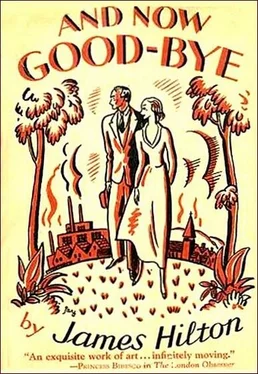“I’ll have the beer with you. May I?”
“All right.” And he gave the order to the waiter, who had probably never before heard Pilsener discussed with such solemnity.
But when the waiter had gone she laughed. “I think that’s rather a symbolic act,” she said. “Wouldn’t Browdley be shocked?”
“Possibly. But without reason. It’s merely another instance of the quite exceptional things that can happen during an Einstein interlude.” He smiled buoyantly, yet a moment later, after watching the pale brown liquid stream into the glasses, he took up his own with a certain sense of significance. It was true, of course, that this simple glass of beer was quite sufficient to shatter all kinds of reputations that he possessed in Browdley; but somehow he could not bring himself to be concerned about it. The cool drink, slightly iced, gave him far different thoughts, breaking through the years till he remembered himself, a young man in his early twenties, on that first thrilling holiday abroad, walking along a winding Rhenish lane amidst blazing sunlight, and calling for a drink at a little wayside refreshment-house where he had sat outside at a bare scrubbed table with a group of working men in peaked caps. He had asked for mineral water, but the girl, misunderstanding his German, had brought him a mug of something which he drank and enjoyed before he realised that it was actually that horrible and dreaded infamy—beer.
He told this story now and she was highly amused, and they went on talking gaily, yet with certain intervals of seriousness, throughout the rest of the meal, until the black coffee, accompanied with cigarettes, provided just that epilogue of reflectiveness that prepared them for the next stage of the evening’s progress. The concert was timed to begin at eight, and at seven thirty he called for the bill and paid a sum which, if he had ever thought about it (but he did not), would have seemed entirely fantastic.
On the pavement outside the restaurant someone said “Taxi, sir?” and he answered “Yes” in the same mood of impulsiveness that had made him ask for Pilsener.
Chapter 8. Friday Evening
In the taxi he began to wonder what was really happening, and after musing for a time a word occurred to him, a rather astonishing word, he thought, but so definitely the right one that he did not seek for any other. It was all a ‘lark’. It was quite the most gigantic lark he had ever had; but then, in fact, his life up to the present had been somewhat deficient in larks of any kind. And it was good for him, he felt, or at any rate, not bad for him, to indulge in such an occasional escapade. Dinner, talk, music—what could be more harmless? After all, he reflected, he had something to celebrate as well as she.
Besides, like all the best larks—perhaps it was what made them the best—it was all to be such a transient thing. To-morrow she would be abroad, to-morrow he would be in Browdley, and possibly, indeed probably, they would never see each other again. She would have those hours and hours of fiddle practice that she longed for, and he would be back in his little world of guild meetings and chapel services, good works and bad cooking. He saw, with a certain grim relish, the years stretching ahead of him; viewed in mind from the dark recesses of a taxi after a good dinner they seemed to reflect, mirror-like, something of that queer quality in the present-which could only be indicated by that same word—a. ‘lark’. After all, the spirit of fun, of adventure, of enterprise, was surely not to be confined to a single place or occasion. Why should there not be adventure in Browdley? He felt, with conviction, that he would be all the better for this London ‘night-out’ when he got home; it had been a revelation of something he had so far rather missed—the joy of life, that unreasonable and illogical human joy that made a man buy what he could not afford and drink (for once) against his convictions and progress to sudden enchanting intimacy with someone whose very charm, perhaps, lay partly in the unlikelihood of any further meeting.
He looked out of the cab-window and glimpsed again the throbbing and incredibly lovely world—the omnibuses and taxis and private cars passing by with people in them he would never know, each with a life-history, ambitions, and a soul to be saved; the whole pageant of life, no more real of course than was to be seen in Browdley, yet somehow swifter, more picturesque in its setting of electric sky-signs and opera-cloaks. He felt like an explorer, almost, in a strange land; all this goes on, he thought, night after night, just as night after night in Browdley the factory-sirens scream at half- past five and the crowds come tumbling into the streets—the curious, animated routine of two worlds, each ignorant of the other, and meeting, when they did, only in the gaze of some bewildered intermediary like himself. He thought of how such a contrast would strike Councillor Higgs, how it would all seem to him no more than a demonstrated theorem from the economics text-book; which might be very sound and scientific, but now Howat was perceiving another aspect—there was this question of joy, of ‘having a lark’, in which, despite Councillor Higgs, the poor were altogether in agreement with the rich. Both understood perfectly the technique of ‘the good time’, and both were looked at askance by the intermediate class. That made him think of the girl’s description of his Browdley congregation—’respectable middle-class people’, she had called them, and it was accurate enough; he tried in vain to call to mind a single ‘chapel’ family that did not come easily within the category. Some were hard up, he knew, but all were of the class that could sniff superiorly in both directions. Why was it that none of the really poorest and commonest people ever came to his chapel? He had seen them often enough outside the Catholic church. Was it possible, he thought, with an uprush of indignation, that he had been doing nothing for a dozen years but preach to the already converted? Suppose for the future he were to concentrate on the rest? But what had he to offer them? Respectability? The right hand of fellowship as dispensed by a narrow-minded and tight-fisted shopkeeper? A Letitia Monks Vestry complete with sham-Gothic gargoyles? Sermons about the Christian life by one who had passed the age of forty without knowing much about any kind of life?
She interrupted his stormy self-questionings to ask what it was that had kept him silent for half the length of Regent Street.
“Rather an odd thought,” he answered. “It just occurred to me that if ever there’s armed revolution in this country I daresay I shall escape, if I wear my collar, and I wouldn’t be surprised if those fellows in opera-hats over there escape too, but the gutters will probably be running with the blood of respectable middle-class people who go to chapel.”
“That sounds rather fierce.”
“Yes, perhaps I don’t mean it very seriously. But I feel fierce enough when I call to mind all the lies that were told me about you.
“Oh, don’t bother about them. Why do you care any more than I do what people say?”
“You really don’t care, do you?”
“Not a bit.”
Accidentally in the darkness of the cab his hand touched hers, and the contact, together with her answer, gave him a suddenly warming affection for her, and through her, for all struggling and adventurous humanity—for the street urchin fighting his first fight, for the speculator staking a fortune on some hairline of probability, for the artist never quite succeeding, and for all kinds of obvious heroes and heroines as well; he saw her spirit in them all, and that such a spirit should be maligned by the secure and the unadventurous swept him again into passionate indignation.
Читать дальше











